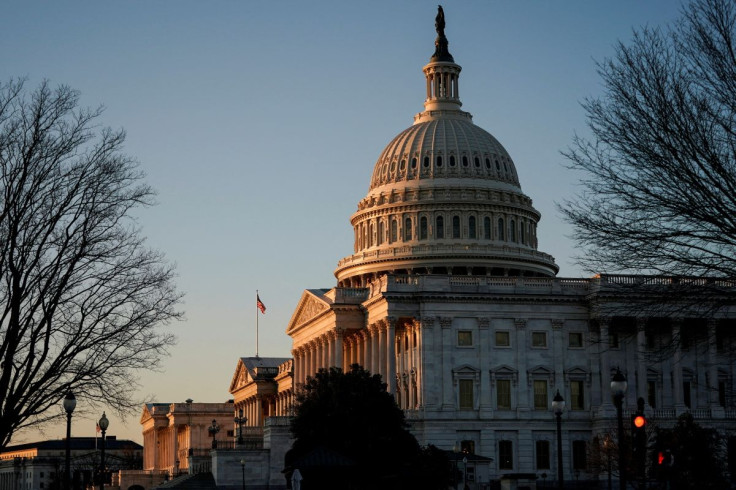Amid Crisis, U.S. Lawmakers Look To Spend Big To Boost Ukraine

Members of the U.S. Congress said on Thursday they could approve hundreds of millions of dollars in additional military and humanitarian aid for Ukraine starting as soon as next week, to boost the government in Kyiv after Russia invaded.
Departing from typical party divisions, both Democrats and Republicans said they favored sharp increases on top of what has already been sent. President Joe Biden's administration has sent $400 million in military assistance to Ukraine since the middle of last year.
U.S. House of Representatives Speaker Nancy Pelosi said lawmakers want to provide Ukraine with $600 million for "lethal defense weapons" to battle Russia's unfolding attack.
"What we're doing with Ukraine is making sure that we have humanitarian assistance to help the people, that we have lethal defense weapons going into Ukraine to the tune of $600 million for them to fight their own fight," Pelosi told reporters in San Francisco.
Ukraine would need $1 billion in humanitarian aid over the next 12 months, Representative Barbara Lee, the Democratic chair of the House subcommittee overseeing foreign aid, said at a press conference in Washington.
Senator Jim Risch, the top Republican on the Senate Foreign Relations Committee, also backed "significant" additional aid for Ukraine. "Obviously the numbers differ between what would go to defensive weaponry and what would go to other things, such as humanitarian needs, which are probably going to be signifcant," he told reporters on a conference call.
Senators had discussed providing $500 million in additional military aid for Ukraine earlier this year during failed negotiations on a bipartisan bill to boost Ukraine and punish Russia. That effort stalled as Democrats and Republicans disagreed over whether to wait to impose sanctions until after an invasion and whether to impose secondary sanctions on institutions that do business with Russian banks.
The Biden administration has not said how much money it would like Congress to authorize. White House spokesperson Jen Psaki said the situation was still being assessed. "We're going to continue to assess the needs on the ground and we certainly are prepared for the potential for there to be major humanitarian, continued humanitarian needs on the ground," she said.
It was not immediately clear whether funding would be approved in a standalone emergency spending bill, or as part of a broader measure to keep the government open after funding expires on March 11.
© Copyright Thomson Reuters 2024. All rights reserved.





















